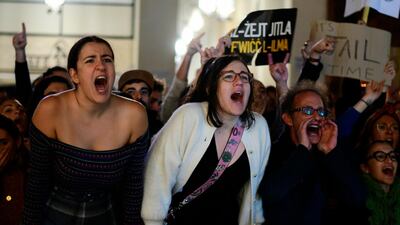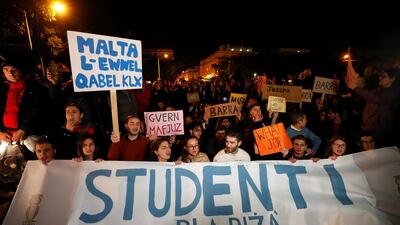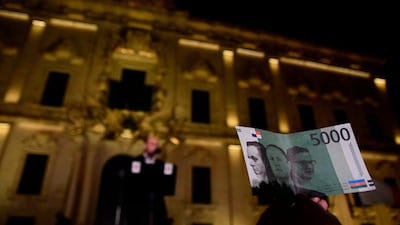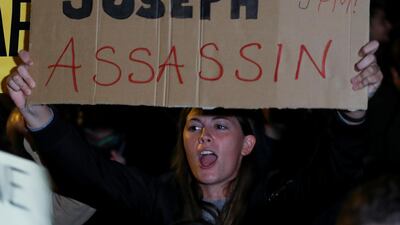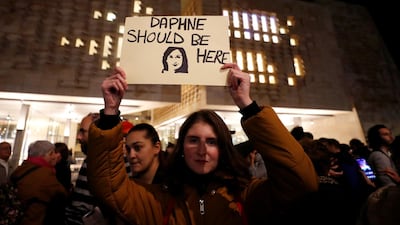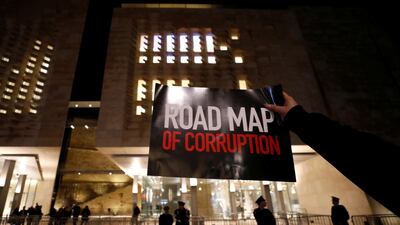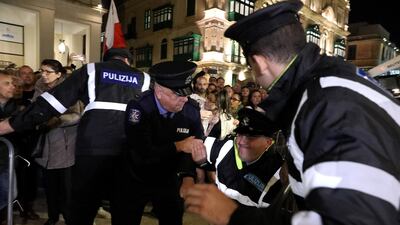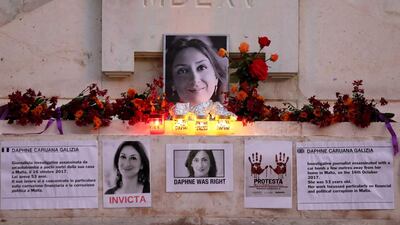Pressure is mounting on Malta’s prime minister to resign as the investigation into the assassination of a leading journalist struck at the heart of his government.
Police have arrested Prime Minister Joseph Muscat’s former chief of staff Keith Schembri for questioning as a person of interest in the murder of popular reporter Daphne Caruana Galizia.
Ms Caruana Galizia was killed by a car bomb as she drove out of her home. Three men are awaiting trial for having set off the bomb.
The investigation has moved swiftly since a Maltese businessman was arrested on a private yacht trying to flee Malta last week.
Mr Muscat refused Thursday to comment on Mr Schembri’s arrest and other developments in the fast-evolving case, saying he would do so only when the investigations are over.
Thousands of angry protesters have demonstrated for five nights outside Mr Muscat’s office demanding his resignation. In Parliament on Wednesday, the opposition demanded Muscat step down, but he refused.
The European Parliament on Thursday agreed to send a mission to Malta to probe its respect for the rule of law after the prime minister's former chief of staff was arrested as part of an investigation into the murder of a journalist.
Following Mr Schembri’s arrest, the leaders of the political groups in the European Parliament decided to send "an urgent mission" to the island to assess the rule of law in the European Union member state, the Greens party said in a statement.
An EU Parliament official confirmed a "fact-finding" mission would go to the island as soon as possible.
Malta's Tourism Minister Konrad Mizzi also announced his resignation on Tuesday and Economy Minister Christian Cardona said the same day he was suspending himself from his duties until the murder investigation was concluded.
"The situation in Malta has consequences for the entire European project," the head of the largest group in the parliament, conservative Manfred Weber, told lawmakers during a sitting in Strasbourg.
"Clear political links must have clear political consequences," he added.
The leader of the socialist grouping in the EU Parliament, Iratxe Garcia Perez, said the Parliament should be careful not to interfere with judicial probes in member states.
The Parliament's probe will assess the independence of the judiciary from political interference, after the European Commission and other international bodies repeatedly raised concerns about the rule of law in the EU's smallest country.
The Parliament has the power to launch disciplinary proceedings against EU states accused of violating fundamental rights. It has done so against Hungary last year over media and judicial reforms put forward by Prime Minister Viktor Orban.
"Questions around the independence of the judicial system and severe allegations of corruption at the highest levels means that a European Parliament mission to Malta is now essential," said Greens lawmaker Sven Giegold.
The Parliament has also decided to discuss recent developments in Malta at its next plenary sitting in mid-December.
The Council of Europe, Europe's chief human rights watchdog, said in a report in May that Malta's rule of law was undermined by weak checks and balances on power and said more must be done to strengthen judicial independence and bolster law enforcement.
Mr Muscat, leader of Malta's ruling Labour Party, told state television in May that the report was "totally biased".

